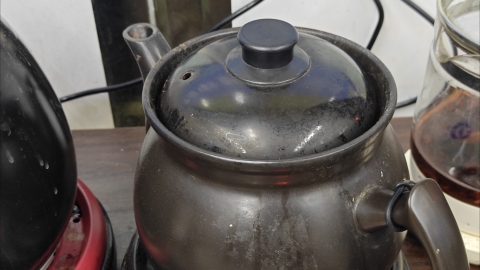Can ingredients such as longan flesh or lotus seeds found in leftover herbal medicine residue be eaten again?
Generally, if the longan flesh or lotus seeds in herbal medicine residue have been sufficiently stewed, are not spoiled, and do not involve contraindicated combinations, they may be consumed in small amounts. However, if overcooked, spoiled, or combined with contraindicated ingredients, consumption is not recommended. If in doubt, it is advisable to consult a healthcare professional beforehand. Detailed analysis is as follows:

During decoction of Chinese herbal medicine, nutrients and medicinal components from ingredients such as longan flesh and lotus seeds partially dissolve into the liquid, but some remain in the residue. If stewed for an appropriate duration (typically 30–60 minutes along with the herbs), and the ingredients remain intact without becoming mushy or spoiled, and there are no contraindicated herbs in the formula, consuming them in moderation can help further absorb residual nutrients and generally does not cause adverse effects.
If the decoction time is too long, the longan flesh and lotus seeds may become overly soft and mushy, resulting in significant nutrient loss, poor texture, and minimal nutritional value. If the residue has been improperly stored and shows signs of mold, off-odors, or spoilage, consumption may lead to gastrointestinal discomfort. Additionally, if the prescription contains cooling, purgative, or other herbs that conflict with the properties of longan flesh or lotus seeds, eating them indiscriminately might interfere with therapeutic efficacy or exacerbate physical discomfort.
Prior to consumption, inspect the appearance and smell of the ingredients to ensure they are not spoiled or rancid; limit portion sizes to avoid overburdening the digestive system. Individuals with complex prescriptions or conditions such as spleen-stomach deficiency should avoid eating the residue when possible. Herbal residues should be disposed of promptly and not stored for extended periods to prevent bacterial growth and potential health risks.







